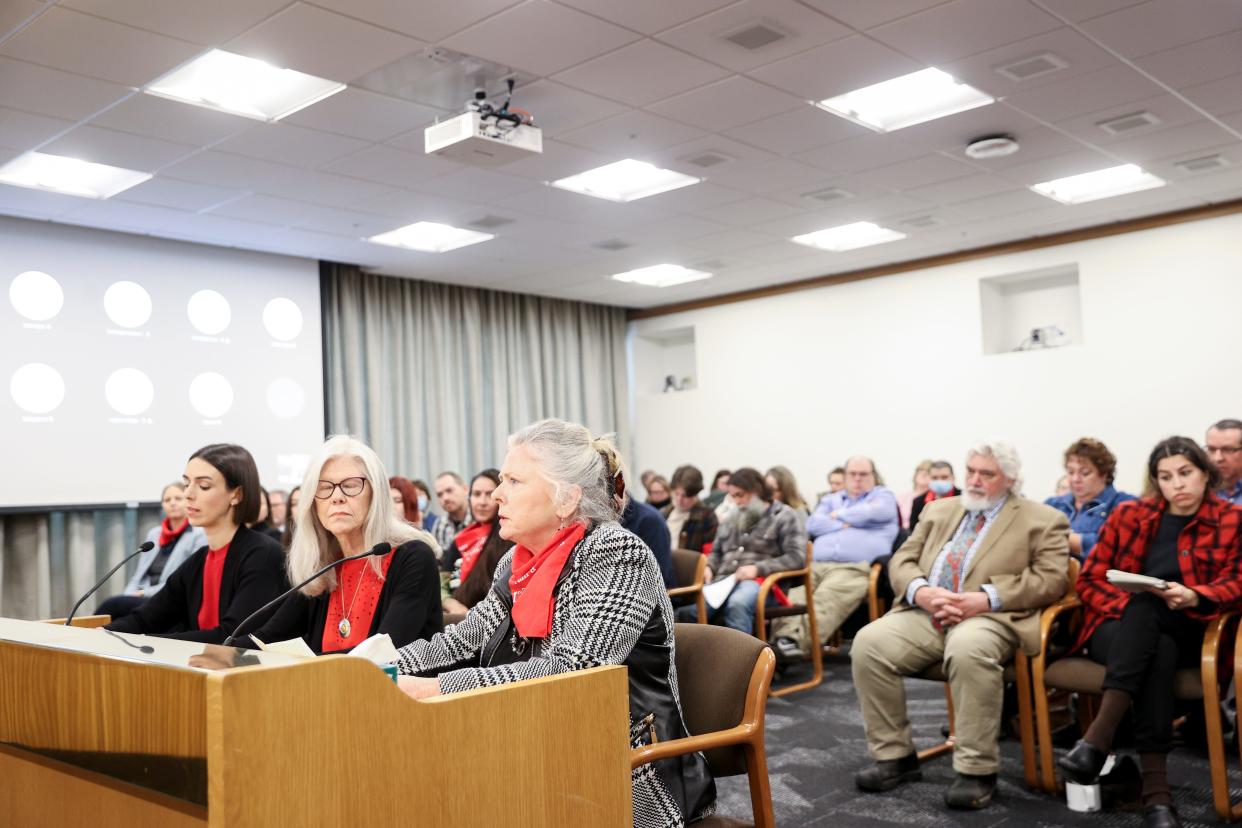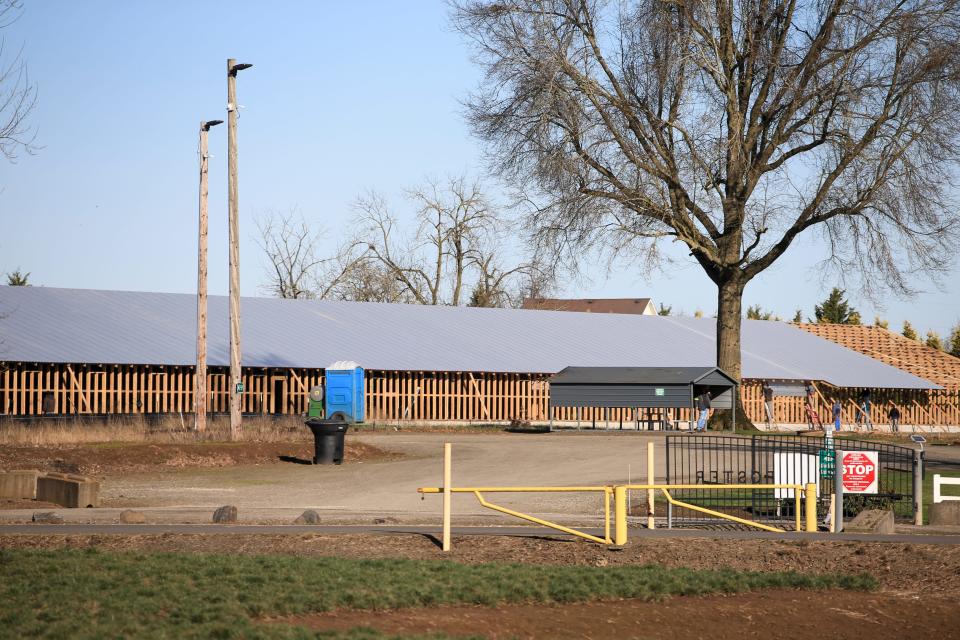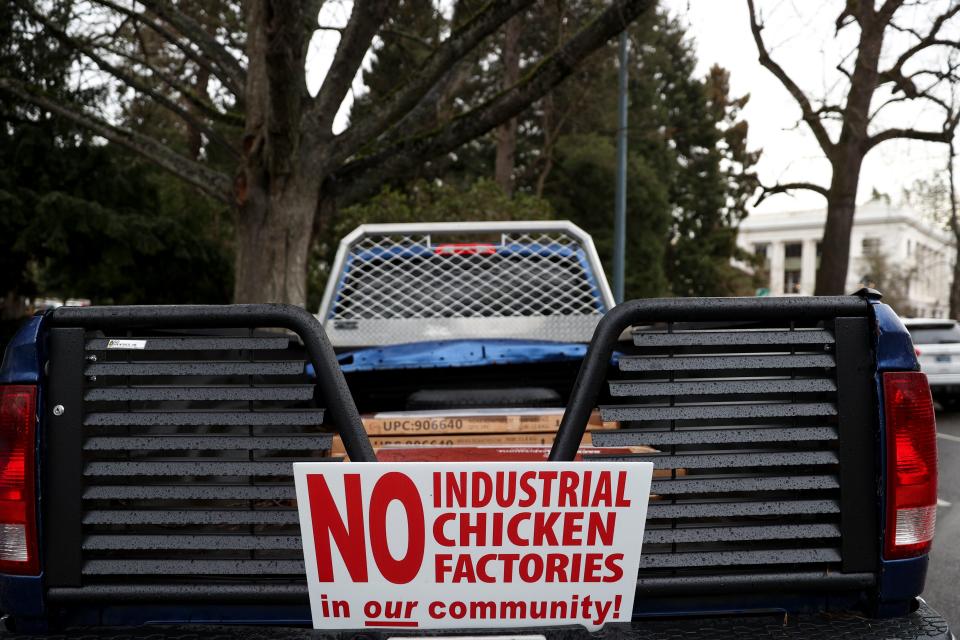Public weighs in on industrial farm moratorium proposal

Dozens of people turned out Monday to weigh in on proposed legislation that would ban new or expanded megadairies, chicken ranches and other large confined-animal operations in Oregon through June 30, 2031.
Hundreds more submitted written testimony on the controversial bill.
Senate Bill 85 would give the state time to study the facilities’ impacts on air, water, animal welfare, workers and communities, its backers say.
The bill is being considered as chicken growers, including Foster Farms, have been rapidly expanding operations in the Willamette Valley, alarming neighbors.
Proposals include a 500,000-chicken facility in Aumsville, a 580,000-chicken facility in Scio and a 750,000-chicken facility between Jefferson and Scio.
“The scale of these factory operations will damage regional recreation, tourism and promotion in Aumsville, Stayton and Scio,” Aumsville city councilors said in written testimony.
Other Willamette Valley cities also wrote in support of the bill.
Farmers oppose bill
Concern has been growing about the environmental and animal welfare impacts of so-called “factory farms” in Oregon since 2017 when regulators allowed the 30,000-cow Lost Valley Farm to open before its animal waste management plan was finished and before it had secured permanent water rights.
The dairy was cited for more than 200 environmental violations over the following 18 months. It closed in 2019 as part of a bankruptcy case.

The bill’s opponents say Oregon already has adequate regulations. They say the moratorium would raise the price of food and force Oregonians to buy food from out of state.
“There is a concerning trend emerging where legislation seeks to pit so-called 'family farms' against other types of operations, namely 'industrial' CAFOs that are depicted as cold, faceless businesses,” said Bill Antilla, of Threemile Canyon Farms. "This is a false narrative."
Threemile is the largest dairy in Oregon, with 60,000 cows, and one of the largest in the country. It supplies milk to Tillamook Creamery Association, which makes Tillamook cheese.
Expanding chicken ranch:Aurora chicken ranch could become largest in Oregon, with no public input required
Tiffany Monroe, president of the Lane County Farm Bureau, said the bill could destroy local farms.
“This is not rooted in justice. It’s playing the game of the oppressor, choosing who gets to farm,” Monroe said.

What the bill does
The bill, with a proposed amendment, defines industrial CAFOs by the number of each type of animal.
The moratorium would apply, for example, to operations with at least 2,500 mature dairy cows; 350,000 broiler chickens if using dry treatment works; or 125,000 chickens if using wet treatment works.
The bill would require the Oregon Department of Agriculture to study the impacts of industrial CAFOs on air quality, climate, water quality, water supplies, small and medium livestock farms, community and worker heath, and animal welfare.
It would require ODA to submit reports to interim legislative committees, including recommendations for legislation, on Dec. 1, 2024, and Dec. 1, 2026.

The bill does not address concerns about Oregon’s stock watering exemption, which allows large animal operations to use water without a permit or water right.
However, changes to the exemption could be addressed as part of ODA’s recommendations.
There were 504 permitted CAFO facilities in Oregon last year. Most are dairies, but there also are CAFOs with horses, cattle, sheep, pigs, chickens, turkeys and quail; and for egg and fur production.
How to weigh in
The hearing will continue at 8 a.m. March 13 in the Senate Committee on Natural Resources. More information is available at olis.oregonlegislature.gov/liz/2023R1/Measures/Overview/SB85.
Tracy Loew covers the environment at the Statesman Journal. Send comments, questions and tips to tloew@statesmanjournal.com, 503-399-6779. Follow her on Twitter at @Tracy_Loew
This article originally appeared on Salem Statesman Journal: Public weighs in on Oregon industrial farm moratorium proposal

